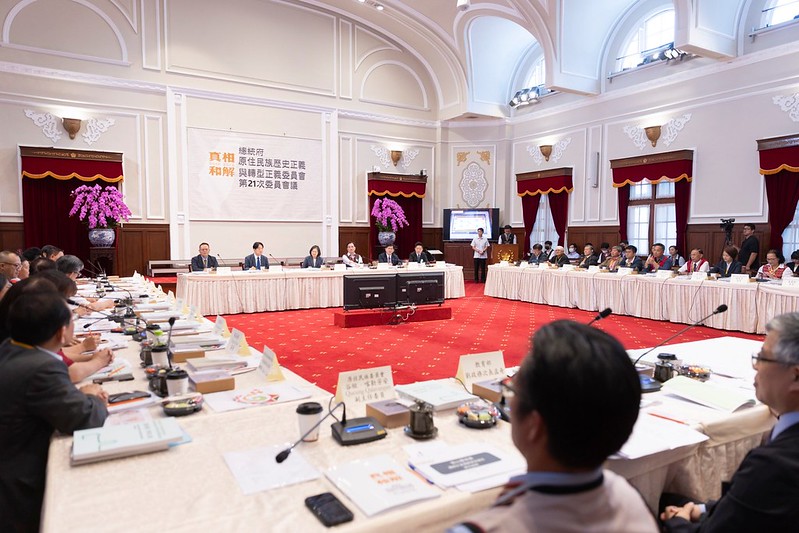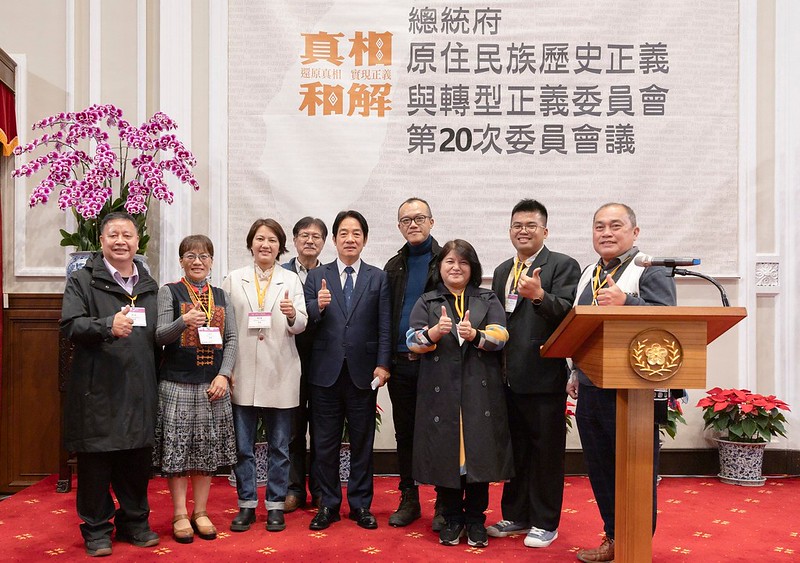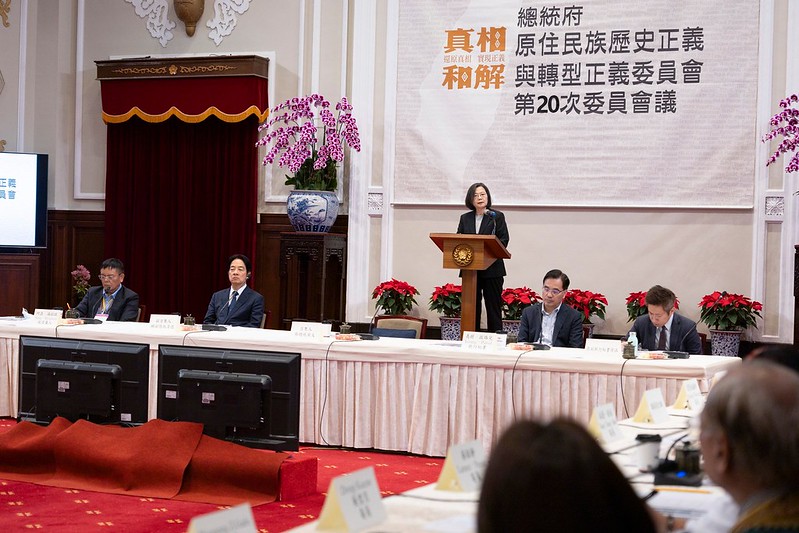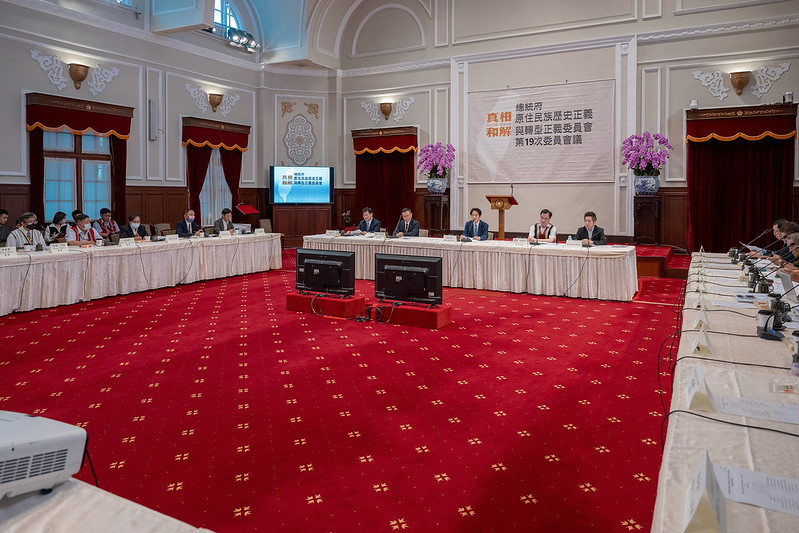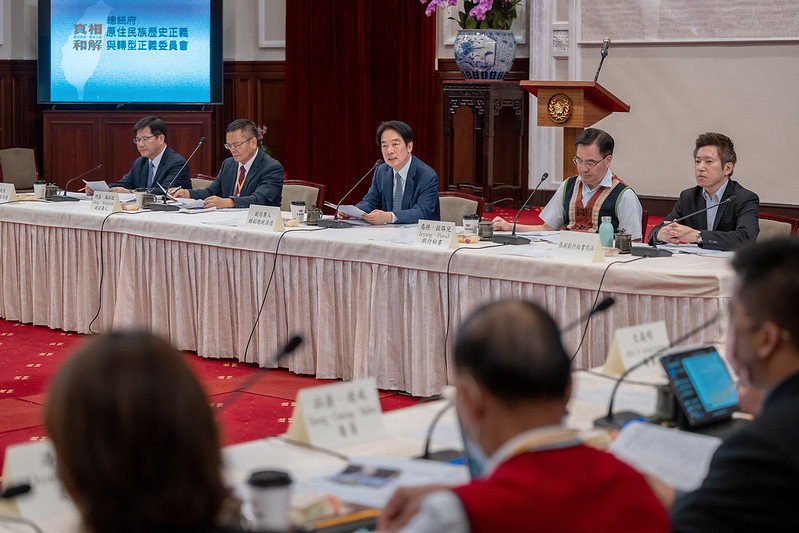News & activities
 News releases
News releases
Committee Convener President Tsai Ing-wen presided over the fifth meeting of the Presidential Office Indigenous Historical Justice and Transitional Justice Committee on March 29, which ran for about two hours.
The meeting agenda included reports on the status of the Asia Cement Corporation (ACC) case, the draft act governing indigenous historical justice and restoration of indigenous rights, and follow-up tasks from the fact-finding report on the establishment of the nuclear waste storage facility on Orchid Island. A committee members' proposal to set up an indigenous peoples' land investigation and management committee was also discussed.
The committee's Executive Secretary Yao Jen-to (姚人多), Mr. Teyra Yudaw (帖喇.尤道, committee member representing the Truku tribe), Minister of Economic Affairs Jong-Chin Shen (沈榮津), and Minister without Portfolio Lin Wan-i (林萬億) explained joint efforts by related agencies to facilitate talks on the ACC case over the past three months.
Following the reports, President Tsai thanked Mr. Teyra Yudaw and the government officials involved for their role in ensuring the March 25 talks regarding the ACC's Xincheng Mountain Mine went smoothly. The president also instructed the Ministry of Economic Affairs (MOEA), the competent authority for the mining industry, to continue their efforts on this case, give a clear account of the truth, and monitor and ensure the safety of the mine site and nearby indigenous communities. She also asked the MOEA to continue to address other demands by local indigenous peoples through ongoing talks.
President Tsai stated that the government will adopt a sincere attitude in striking a balance between indigenous rights, environmental sustainability, and economic development. Through talks on the ACC case, the indigenous peoples, the government, and mining enterprises have begun to learn how to defuse historical conflicts and achieve sustainable development, and can set an example. The president said she will continue to pay close attention to ongoing developments.
Minister of the Council of Indigenous Peoples Icyang Parod (夷將.拔路兒) explained plans for drafting the bill governing indigenous historical justice and the restoration of indigenous rights. After a lively exchange of views, President Tsai instructed the Executive Yuan to completely re-evaluate the designing of that bill in conjunction with the proposal to set up an indigenous peoples' land investigation and management committee, and then arrange for the committee's Deputy Convener Pasuya Poiconu (浦忠成) to preside over a meeting and invite the committee members to exchange views again.
Minister without Portfolio Lin Wan-i then reported on follow-up tasks from the fact-finding report about the establishment of the nuclear waste storage facility on Orchid Island. He pointed out that the completed fact-finding report sets out recommendations for relocating the storage facility, paying compensation for damages, providing healthcare resources, and the future development of Orchid Island. After exchanging views with the committee members, the president asked the Executive Yuan to continue their efforts based on those four recommendations.
Twenty-one committee members put forward proposals at the fifth committee meeting. Two proposals addressed the establishment of an indigenous peoples' land investigation and management committee. Of the remaining 19 proposals, two were forwarded to the thematic subcommittees for further study, two to committee staff, and 15 to the Executive Yuan.
Before wrapping up the meeting, President Tsai again invited the first-term committee members—including the representatives from individual indigenous tribe as well as scholars and experts on the committee—to stay on, in accordance with the committee's establishment guidelines, as members of the second committee, and keep working together for long-term institutional reform.
